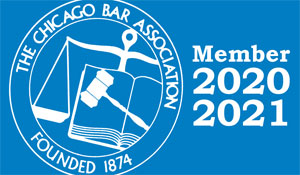Probate and Estate Administration
Legal and Practical Matters
When a person dies, with or without leaving a will, there are legal and practical matters that need to be addressed in administering the decedent’s estate. We are experienced in helping families with all aspects of the estate administration process. This often involves working with the decedent’s accountant, financial advisor, insurance or real estate agents toward a speedy resolution of estate issues.
The Process
The process of estate administration usually includes:
- A thorough review of all estate plan documents;
- Identifying, locating and collecting the decedent’s assets;
- Creating an inventory of the assets with valuations of each item of property the decedent had an interest in;
- Collecting all of the decedent’s rights to income, such as interest and dividends;
- Determining and paying the decedent’s debts, expenses and taxes;
- Sale of estate assets when needed to raise funds to pay estate obligations; and
- Ensuring the orderly transfer of assets to the estate beneficiaries.
Hot Tip
Estate administration can occur completely outside of probate or may be carried out through the probate court. Whether or not probate is required depends upon the nature and extent of a decedent’s property and the estate plan documents that were in place when he or she died.
Probate and Operation of Law
As a general rule, if a decedent did not own more than $100,000.00 of personal property in his or her name at the time of death, it is not necessary to open a probate estate. However, probate may be required if the decedent held title to real estate that requires the appointment of an executor or administrator to effectuate the sale of the property.
Property that passes to others by “operation of law,” such as life insurance proceeds, payable on death bank accounts and property held in joint tenancy with rights of survivorship is not subject to the probate court. Property that has been transferred into a trust during the decedent’s lifetime also passes outside of probate.
Although probate is often thought of as something to avoid, Illinois law has simplified the probate process by providing for the independent administration of estates. This means that once a probate case is opened by a probate court judge, the executor or administrator of the estate can proceed to administer the estate free of the supervision of the probate court. Many probate cases can be finalized and closed within seven to twelve months, depending upon the complexity of the issues involved.
Solicitar una Consulta
Si desea que un abogado se comunique con usted para una consulta gratuita, complete este formulario.
Llamenos
312-558-1850
Envíanos un correo electrónico
inquiry@beyondthelaw.net
Attorney Advertising. This information is designed for general information only. The information presented should not be construed to be formal legal advice nor the formation of a lawyer/client relationship. Past results and testimonials are not a guarantee, warranty, or prediction of the outcome of your case, and should not be construed as such. Past results cannot guarantee future performance. Any result in a single case is not meant to create an expectation of similar results in future matters because each case involves many different factors, therefore, results will differ on a case-by-case basis.
© 2020 Bruzgul & Associates All Rights Reserved | Privacy Policy






